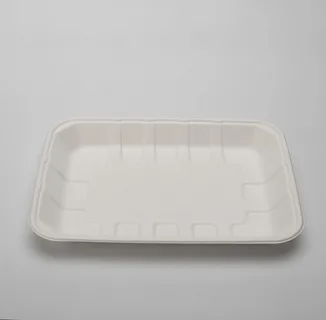In the ever-evolving landscape of packaging, businesses are increasingly turning to innovative, sustainable solutions to meet consumer demands and environmental regulations. Paper pulp molding is emerging as a versatile and eco-friendly alternative to traditional packaging methods. This article explores the benefits, applications, and customization options available with paper pulp molding and its significance for businesses.
Understanding Paper Pulp Molding: A Sustainable Packaging Solution
Paper pulp molding involves the use of recycled paper or plant fibers to create sturdy, biodegradable packaging products. The process begins with pulping raw materials, forming the desired shapes in molds, and then drying them for final use. This method is celebrated for its environmental benefits, as it reduces the dependency on plastics and other non-biodegradable materials.
Businesses worldwide are increasingly recognizing the value of paper pulp molding in their packaging strategies. Its ability to integrate recycled materials not only aligns with sustainable practices but also reduces production costs. Additionally, molded pulp is lightweight and durable, making it ideal for protecting products during transit while minimizing shipping expenses.
Benefits of Customizable Paper Pulp Packaging
One of the standout features of paper pulp molding is its high degree of customizability. Companies can design packaging tailored to the specific dimensions and contours of their products. From intricate shapes to embossed logos, the possibilities are vast, allowing brands to create a unique and professional impression.
This customization is particularly beneficial for businesses looking to enhance their branding. With the ability to incorporate company logos, slogans, and other design elements directly into the packaging, businesses can improve brand recognition and appeal. Moreover, the eco-friendly nature of molded pulp resonates with environmentally-conscious consumers, further strengthening brand loyalty.
Applications Across Various Industries
Paper pulp molding is not confined to a single sector; its applications span numerous industries. In the food and beverage industry, molded pulp is used for items like egg cartons, drink carriers, and food trays, providing safe, biodegradable solutions for everyday packaging needs.
The electronics and consumer goods sectors also benefit significantly. Fragile items such as gadgets, glassware, and medical instruments are often packed in molded pulp inserts, which offer excellent cushioning and protection. Even luxury brands have started adopting molded pulp for eco-conscious packaging, demonstrating its versatility and wide-ranging appeal.
Enhancing Product Safety and Sustainability
Customizable packaging made from paper pulp molding provides superior product safety. Its shock-absorbing properties make it an ideal choice for protecting delicate items during transportation. Unlike traditional foam or plastic inserts, paper pulp does not leave a negative environmental footprint, making it a guilt-free choice for businesses and consumers alike.
Sustainability is at the core of paper pulp molding. The materials used are biodegradable, compostable, and often derived from post-consumer waste. This not only reduces landfill contributions but also positions businesses as responsible, forward-thinking entities that prioritize environmental stewardship.
The Future of Packaging with Paper Pulp Molding
As consumer preferences shift towards sustainable products, the demand for paper pulp molding is set to grow. Innovations in technology are continually improving the efficiency and design capabilities of this packaging method. For instance, advanced molding techniques now allow for more precise designs, enabling businesses to cater to niche markets with specialized packaging needs.
The versatility of paper pulp molding makes it a frontrunner in the sustainable packaging revolution. Beyond its ecological advantages, its adaptability ensures it can meet diverse industry needs, from delicate electronics to robust industrial components. As technology progresses, the integration of automation and AI-driven design in pulp molding processes is likely to further enhance production efficiency and design intricacy, making it even more appealing to modern businesses.
Moreover, the growing global emphasis on sustainability is driving legislative changes that favor biodegradable and recyclable materials. This trend reinforces the need for businesses to adopt eco-friendly practices. By transitioning to paper pulp molding, companies not only comply with regulations but also position themselves as leaders in environmental responsibility. This proactive approach not only safeguards the environment but also builds trust and loyalty among consumers, many of whom are willing to support brands that prioritize sustainability.
For businesses, investing in paper pulp molding represents a strategic move towards future-proofing their operations. By adopting this eco-friendly packaging solution, companies can stay ahead of regulatory changes, meet the rising expectations of environmentally-aware consumers, and solidify their reputation in the market.
Conclusion
Customizable packaging with paper pulp molding is revolutionizing the way businesses approach their packaging needs. Its sustainability, versatility, and branding potential make it an indispensable tool for companies looking to balance functionality with eco-consciousness. As technology continues to evolve, paper pulp molding is poised to become an integral part of sustainable packaging solutions, offering immense benefits for businesses and the environment alike.

